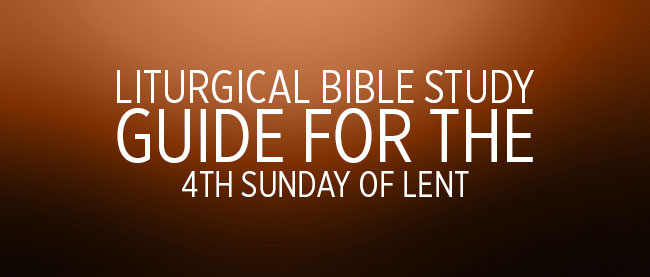1st Reading – 1 Samuel 16:1b, 6-7, 10-13a
The books of Samuel were originally one book and actually form a continuation of the deuteronomic history of the people of Israel. It also marks a turning point in the history of God’s people as Samuel is the last of the judges. Under increasing pressure from the Philistines, Samuel struggles to keep Israel faithful to Yahweh. Defeats in battle and the failure of Samuel’s sons to follow his example, convince the people that Israel needs a new kind of leadership; a king. Samuel thought this was wrong, but God told him “Grant the people’s every request. It is not you they reject, they are rejecting me as their king. 8 As they have treated me constantly from the day I brought them up from Egypt to this day, deserting me and worshiping strange gods, so do they treat you. 9 Now grant their request; but at the same time, warn them solemnly and inform them of the rights of the king who will rule them.” 10 Samuel delivered the message of the LORD in full to those who were asking him for a king. 11 He told them: “The rights of the king who will rule you will be as follows: He will take your sons and assign them to his chariots and horses, and they will run before his chariot. 12 He will also appoint from among them his commanders of groups of a thousand and of a hundred soldiers. He will set them to do his plowing and his harvesting, and to make his implements of war and the equipment of his chariots. 13 He will use your daughters as ointment-makers, as cooks, and as bakers. 14 He will take the best of your fields, vineyards, and olive groves, and give them to his officials. 15 He will tithe your crops and your vineyards, and give the revenue to his eunuchs and his slaves. 16 He will take your male and female servants, as well as your best oxen and your asses, and use them to do his work. 17 He will tithe your flocks and you yourselves will become his slaves. 18 When this takes place, you will complain against the king whom you have chosen, but on that day the LORD will not answer you.” 19 The people, however, refused to listen to Samuel’s warning and said, “Not so! There must be a king over us. 20 We too must be like other nations, with a king to rule us and to lead us in warfare and fight our battles.” 21 When Samuel had listened to all the people had to say, he repeated it to the LORD, 22 who then said to him, “Grant their request and appoint a king to rule them.”
Samuel thereupon said to the men of Israel, “Each of you go to his own city.” (1 Samuel 8:7-22). Samuel then anointed Saul, who doesn’t work out too well, then God tells him to anoint David. It is of David’s selection that we hear today.
2nd Reading – Ephesians 5:8-14
The destination of this epistle has caused some discussion. Although the manuscript tradition preponderantly supports the title “to the Ephesians,” a number of early manuscripts read simply “to the saints and faithful who are in Christ Jesus.” It is also interesting that not a single member of the Ephesian community is greeted or mentioned – It was Paul’s practice to extend such greetings in his letters. The uncertainty over the epistle’s destination has occasioned a number of conjectures: It is the epistle to the Laodiceans alluded to in Colossians 4:16; It is Paul’s last message to the Church; It was prepared by an anonymous author as an introduction to a group of Pauline letters; and It was a circular letter, written at the same time as Colossians and Philemon and directed to the communities of the province of Asia. This last explanation is considered to be the most probable.
All this discussion aside, Ephesus was in Western Asia Minor, established by Ionian Greeks in the 11th century B.C. It possessed the famous Temple of Diana, one of the seven wonders of the ancient world, and was a center of magical practice. The Church was established there early and was visited by Saint Paul. It is the place where Saint John is reputed to have written his gospel, and he may also have been buried there. An impressive basilica was built over his supposed tomb. According to one tradition, the dormation or assumption of the Blessed Virgin Mary occurred on a hill near the city. Early in the 14th century A.D. it was occupied by the Turks and all that remains now is a small village called Selcuk which is located near the extensive ruins of the ancient city.
Today’s reading comes from the section of the epistle which gives exhortations to worthy conduct.
Gospel – John 9:1-41
Last week we heard of the Samaritan woman at the well. This week we hear of the man born blind. Jesus had gone to Jerusalem for the Feast of Tabernacles (September-October of the year before His crucifixion) in chapter 7. In Chapter 8 he is still in the vicinity of Jerusalem at the Mount of Olives and in and around the Temple. Our reading for today encompasses all of chapter 9. In chapter 10, Jesus is in Jerusalem for the Feast of Dedication (Lights/Hanukkah) which occurs in November-December.
We can deduce then that our reading for today takes place in or very close to Jerusalem, probably in October or November of the year prior to His passion. This reading contrasts Jesus (the light of the world) with the Pharisees (blindness).


